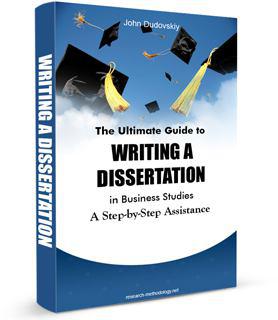Reliability and Validity
Issues of research reliability and validity need to be addressed in methodology chapter in a concise manner.
Reliability refers to the extent to which the same answers can be obtained using the same instruments more than one time. In simple terms, if your research is associated with high levels of reliability, then other researchers need to be able to generate the same results, using the same research methods under similar conditions. It is noted that “reliability problems crop up in many forms.
Reliability is a concern every time a single observer is the source of data, because we have no certain guard against the impact of that observer’s subjectivity” (Babbie, 2010, p.158). According to Wilson (2010) reliability issues are most of the time closely associated with subjectivity and once a researcher adopts a subjective approach towards the study, then the level of reliability of the work is going to be compromised.
Validity of research can be explained as an extent at which requirements of scientific research method have been followed during the process of generating research findings. Oliver (2010) considers validity to be a compulsory requirement for all types of studies. There are different forms of research validity and main ones are specified by Cohen et al (2007) as content validity, criterion-related validity, construct validity, internal validity, external validity, concurrent validity and face validity.
Measures to ensure validity of a research include, but not limited to the following points:
a) Appropriate time scale for the study has to be selected;
b) Appropriate methodology has to be chosen, taking into account the characteristics of the study;
c) The most suitable sample method for the study has to be selected;
d) The respondents must not be pressured in any ways to select specific choices among the answer sets.
It is important to understand that although threats to research reliability and validity can never be totally eliminated, however researchers need to strive to minimize this threat as much as possible.
 My e-book, The Ultimate Guide to Writing a Dissertation in Business Studies: a step by step assistance offers practical assistance to complete a dissertation with minimum or no stress. The e-book covers all stages of writing a dissertation starting from the selection of the research area to submitting the completed version of the work before the deadline.
My e-book, The Ultimate Guide to Writing a Dissertation in Business Studies: a step by step assistance offers practical assistance to complete a dissertation with minimum or no stress. The e-book covers all stages of writing a dissertation starting from the selection of the research area to submitting the completed version of the work before the deadline.
John Dudovskiy
References
- Babbie, E. R. (2010) “The Practice of Social Research” Cengage Learning
- Cohen, L., Manion, L., Morrison, K, & Morrison, R.B. (2007) “Research methods in education” Routledge
- Oliver, V, 2010, 301 Smart Answers to Tough Business Etiquette Questions, Skyhorse Publishing, New York USA
- Wilson, J. (2010) “Essentials of Business Research: A Guide to Doing Your Research Project” SAGE Publications
